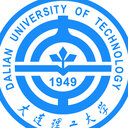Inhibition of human prostate cancer cells growth by gossypol is associated with stimulation of transforming growth factor-beta.
Mots clés
Abstrait
Gossypol (GP), an antifertility agent in males, is also capable of inhibiting the proliferation of a wide range of cancer cells in vivo and in vitro. Thus, in this study we investigated the effect of GP on the growth of human androgen-independent prostate cancer cell line (PC3). The results showed that GP acts as a potent inhibitor of PC3 cells as determined by thymidine incorporation assay and flow cytometric analysis. Flow cytometry revealed that treatment of PC3 cells with GP resulted in a dose- and time-dependent accumulation of cells in the GO/GI phase with a concomitant decrease in cells progressing to the S and G2/M phase. These data support our thymidine incorporation results which indicated that GP is a potent inhibitor of PC3 cells. By ribonuclease protection assay, we also investigated the effect of GP on transforming growth factor-beta 1 (TGF-beta 1) gene expression in PC3 cells. Interestingly, the stimulatory effect of GP on TGF-beta 1 gene expression correlates well with its inhibitory effect on PC3 cell DNA synthesis and its ability to arrest cells in GO/G1 phase. Based on these data, it can be concluded that GP is a potent inhibitor of prostate cancer cell growth that acts by arresting cells in GO/G1 phase and that this inhibitory effect may be mediated by TGF-beta 1.


